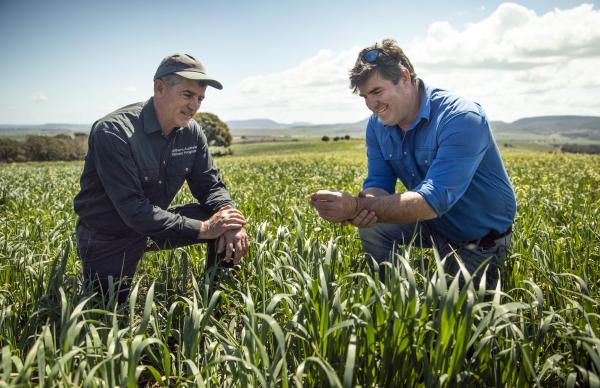Grazier Darren Marshall credits the advice of a trusted friend with overcoming tough decisions in the face of Australia’s worst drought in history.
Mr Marshall was in the process of converting a property near Warwick into ideal pastoral land when years of poor rain brought things to a standstill.
“There were a couple of years there it was too risky to establish the needed medics to renew the pastures. We couldn’t do anything and this time last year was certainly the worst of it,” he said.
Knowing a misstep could end in ruin, he consulted his local ‘Climate Mate’, Paul Webb – the man on the ground for the University of Southern Queensland and Queensland Government’s Northern Australia Climate Program.
Picked for their knowledge of the industry and their capacity to network and communicate with producers, Climate Mates share regionally specific climate and forecast information as well as gather feedback on research and product development.
“I’ve known Paul for a long time, and we were talking my options. The information he shared was really beneficial for me to make decisions as to where to move the cattle and when,” Mr Marshall said.
“Together we looked at the data on rain and pasture growth predictability. Based on that I moved the cattle to a different property with a better outlook.
“It’s meant that a few months on, things are back on track and look really good.”
The Northern Australia Climate Program is a partnership between the Queensland Government, Meat and Livestock Australia and the University of Southern Queensland to help producers manage drought and climate risks.
The Climate Mate initiative connects local representatives with leading researchers at the University, BOM and UK Meteorological Office – a local expert to help landholders.
According to Mr Webb, their key role is to ‘translate’ the best available climate information to a local context, and making it available to farmers when they need to make decisions.
“One of the challenges for landholders is to interpret global or national data for a regional setting, asking what it means for them and how reliable is it,” Mr Webb, who also works with Southern Queensland Landscapes, said.
“It’s a big responsibility but also very exciting for us to bring world class climate information to people I regard as world class land managers.”
• To learn more about the program, visit www.nacp.org.au/outreach/climate_mates.







